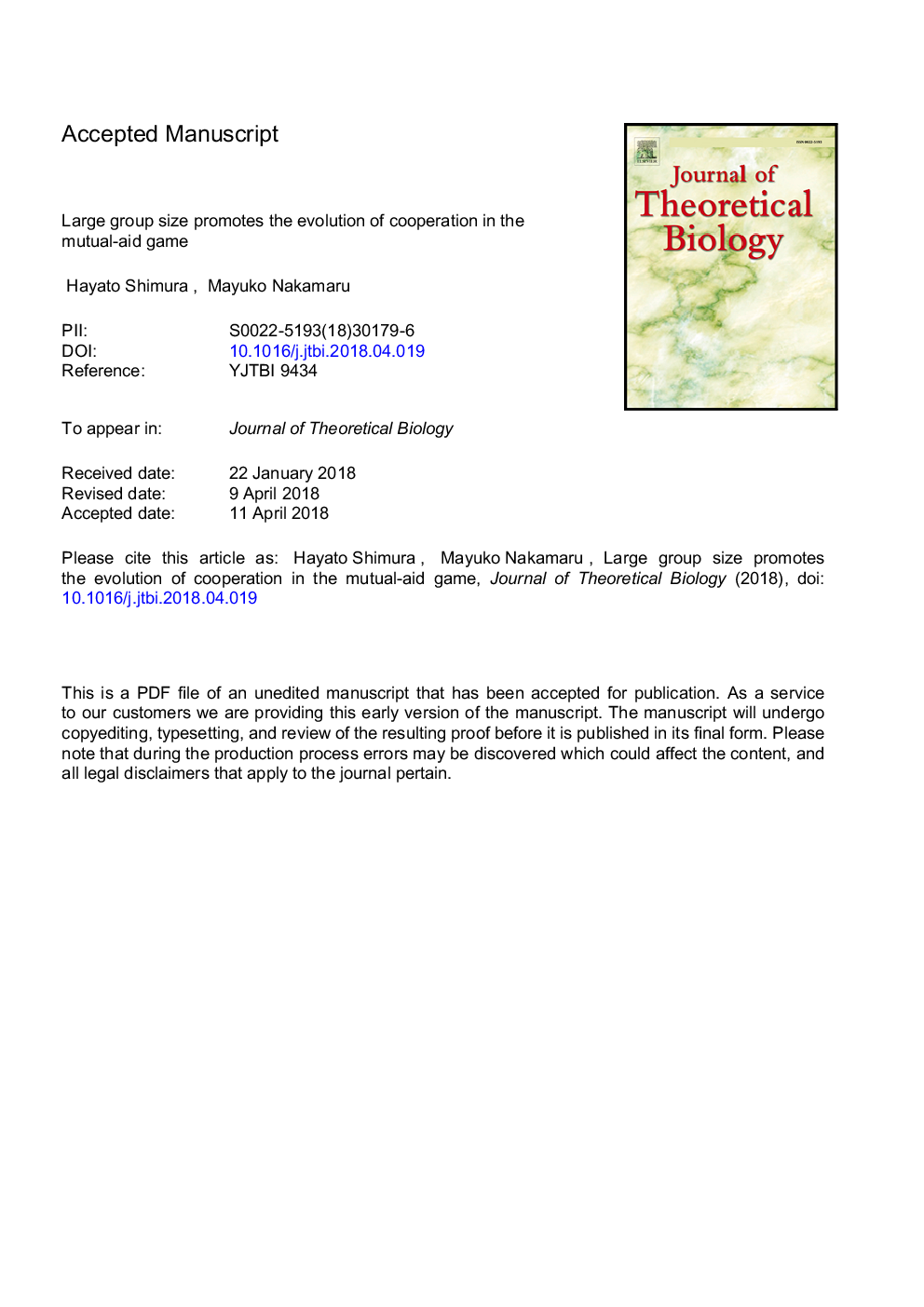| Article ID | Journal | Published Year | Pages | File Type |
|---|---|---|---|---|
| 8876636 | Journal of Theoretical Biology | 2018 | 35 Pages |
Abstract
Our key findings are as follows. In a multilateral relationship in which members play the mutual-aid game in a group whose size is greater than two, once two or more defectors are in bad standing, they remain bad under the rule that a donor's bad reputation remains bad, whether or not the donor helps a recipient with a bad reputation. Then, cooperators never help them, and mutation helps the invasion of rare cooperators more when the group size is larger in the finite population, even when implementation and perception errors occur. Meanwhile, this rule never helps the invasion in the bilateral relationship in which the group size is two. Our results suggest that large group cooperation can be sustainable if social institutions are equipped with systems such as those in the mutual-aid game.
Related Topics
Life Sciences
Agricultural and Biological Sciences
Agricultural and Biological Sciences (General)
Authors
Hayato Shimura, Mayuko Nakamaru,
